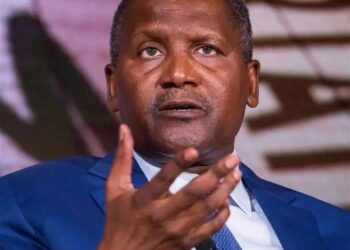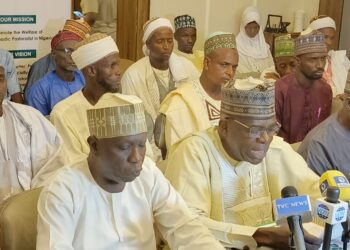By Solomon Attah, Lafia
In order to provide more dividends of democracy to the people, the Nasarawa State Government, has developed new strategies to increase its Internally Generated Revenue (IGR) and to harness the mineral resources of the state.
Governor Abdullahi Sule stated this during his visit to the Emir of Karshi, Sani Mohammed-Bako in Karshi Development Area of Karu Local Government of the state.
According to him, his administration has taken bold steps to improve the revenue base of the state through the establishment of local processing industries, mainly for the local mineral resources in the state.
“Karshi Development area is endowed with rich natural resources including Gold and Lithium. A tone of Lithium then was sold for eight thousand Dollars.
“But now, it costs seventy two thousand dollars per tone. Lithium is used for the manufacturing of batteries for handset among other things.
“We will continue to look for ways of attracting foreign investors to exploit these resources within the localities instead of extracting them and export them.
“I am happy to inform you that the marbles and tiles you see in airports in Lagos and other major cities in Nigeria are manufactured in Gudi. So we have started the establishment of local processing industries mainly for our local mineral resources.
“We are doing all these to raise our revenue base. In 2019 the internally generated revenue of the state was N7.1 Billion but today due to our determination and commitment to harnessing what we have, the IGR of the state is over N20 Billion monthly.
“That is why we are able to pay salaries as at when due. Right now we no longer wait for allocation from the federation account to carry out our activities. We have money gotten from our IGR that we can also use to pay salaries.”
The governor stated that if given the mandate for the second time, he will ensure that more women are captured in the “Kudin A. A. Sule Project” which is a micro finance scheme primarily for women empowerment.
“Our women will continue to be supported with grants to invest in small businesses. Karshi which is in Karu is so dear to my heart considering its close proximity to the Federal Capital Territory.
“We will, therefore take advantage of the abundant resources to transform them for the development of the area and the state in general,” Sule said.
Sule further stated that, the party in the state felt it was not enough to take campaigns just to local government areas alone, hence the reason for visiting development areas to also solicit the support of people in the forthcoming general elections.
He called on the people of the area, especially the traditional rulers to enlighten the people to live in peace to attract more development.
The Emir of Karshi, Sani Mohammed-Bako, appreciated the governor and his entourage for the visit and congratulated him for the good works he has done so far across the state including Karshi Development Area.
He assured the governor of his people’s desire to reward his administration with votes for the good work done so far and appealed to him to redouble efforts in developing Karshi Development Area if reelected.
Earlier, Chairman Nasarawa State APC Campaign Council, Abubakar Sodangi said, the visit to the palace of the Emir was to inform him of the governor’s reelection and to seek his blessing and assure the people of the area of the governor’s commitment in improving their livelihood among others if re-elected.
“The governor has said over and over again that he is going to take advantage of our proximity with Abuja to open doors of opportunities for the people of the state especially you people living in Karu
“All he is seeking for is your blessings and support to get reelected and finish the numerous projects he has started,” he said.
Governor Sule’s is currently touring the 18 Development Areas across state, where he is holding Townhall meetings with stakeholders after the initially campaign to all the 13 local governments.








